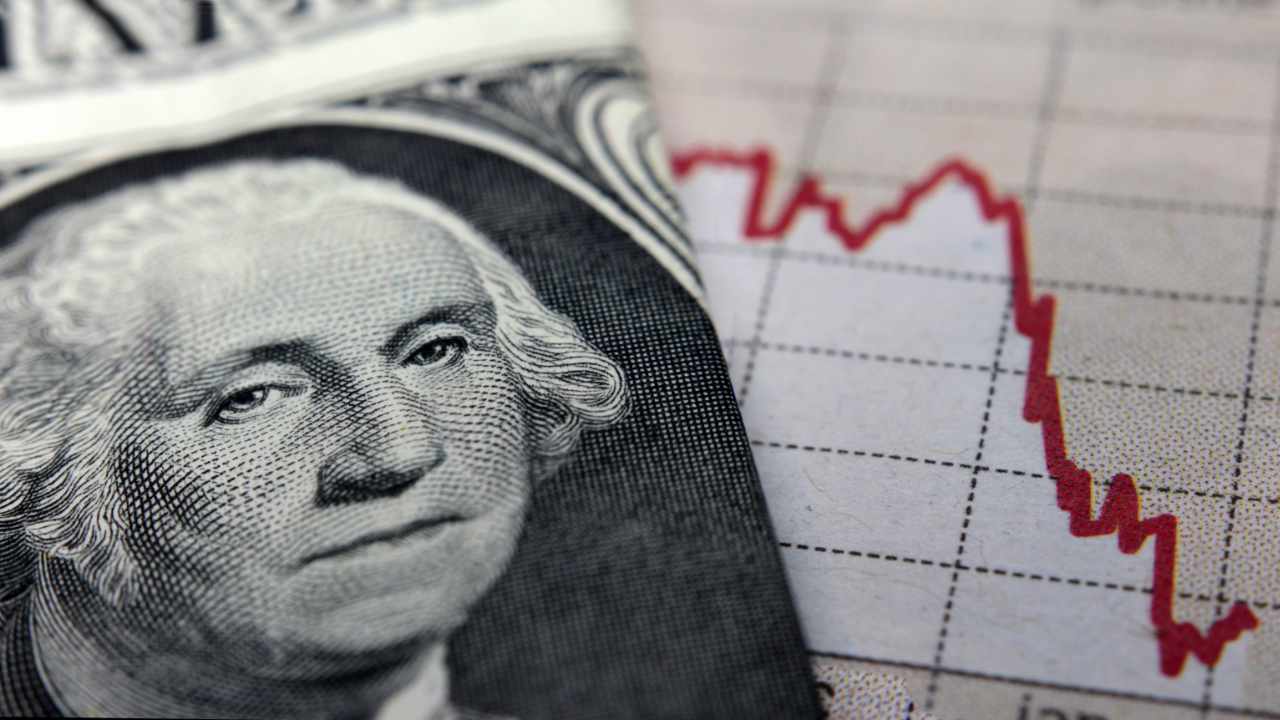Kevin Helms
A student of Austrian economics, Kevin found Bitcoin in 2011 and has been an evangelist ever since. His interests lie in Bitcoin security, open source systems, network effects and the intersection of economics and cryptography.
all about cryptop referances

Economist Peter Schiff expects many more banks to fail, warning that “nobody’s money is safe in any bank.” He emphasized: “When the Fed sets interest rates too low and prints a lot of money … it triggers massive inflation, creates huge economic imbalances that result in financial crises and depressions when bubbles burst.”
Economist and gold bug Peter Schiff discussed the US banking crisis and where the US economy is headed in an interview last week on the One America News Network.
Referring to “the mess that the Fed made by keeping interest rates so low for so long,” Schiff explained that it allowed banks to load up on “low-yield, overpriced long-term debt, Treasuries, [and] mortgages.” Moreover, he emphasized that the government and regulators are pushing banks “into these securities with favorable accounting treatment for government securities or something guaranteed by the U.S. government.” He warned:
Many more banks are going to fail. This is just reality.
Commenting on the Federal Deposit Insurance Corporation (FDIC) considering how to adjust coverage for regional banks after several large banks failed, Schiff suggested: “How about abolishing the FDIC and letting the free market handle banking. We would have a much more robust banking system if depositors knew that their deposits could be lost in a bank that was reckless and took a lot of risk, and then those banks would be under competitive pressure not to take that kind of risk.”
Noting that the source of the US banking crisis is that “We socialized the banking industry,” Schiff elaborated: “We also socialized interest rates because the Federal Reserve is like a political agency. They just pick an interest rate instead of letting the market find right interest rate.” The economist thought:
When the Fed sets interest rates too low and prints a lot of money to make it possible, it unleashes massive inflation, creating huge economic imbalances that result in financial crises and depressions when bubbles burst. That’s where we are right now.
Schiff added: “I think the Fed is going to have to unleash so much inflation to try to prop up all these banks, and the U.S. government, which is also insolvent. It’s going to unleash inflation. That’s the real the problem.” He warned:
No one’s money is safe in any bank, because even if your bank doesn’t fail, it’s going to be bailed out through inflation. So you may not lose your money, but your money will definitely lose its purchasing power.
Regarding the Federal Reserve raising interest rates by 25 basis points at their last Federal Open Market Committee (FOMC) meeting, Schiff stated that it is not enough to bring down inflation, but “it is enough to create more problems for the banks and everyone else who has debts that they have to service.”
He explained that many companies and individuals, especially those who own commercial property, took out short-term loans at very low rates a few years ago. When these loans come due, they cannot afford higher payments. “They have less income, and now the interest expense is going up,” Schiff described. In addition, many companies that borrowed in the junk bond market will not be able to afford to service their debt at the new rates when those bonds mature, he noted, stressing:
So, the main part of this financial crisis, which has just started, is in our future. We are only at the tip of a huge iceberg right now.
As for where people should put their money, Schiff advised: “Get out of the dollar. Get out of the banks and get into something real, be it gold, silver, foreign stocks. You have to look for a port in the storm because this is an inflationary tsunami.”
What do you think of the warning from economist Peter Schiff? Let us know in the comments section below.
Image credit: Shutterstock, Pixabay, Wiki Commons
Disclaimer: This article is for informational purposes only. It is not a direct offer or solicitation of an offer to buy or sell, or an endorsement or recommendation of products, services or companies. Bitcoin.com does not provide investment, tax, legal or accounting advice. Neither the company nor the author is directly or indirectly responsible for damages or losses caused or alleged to be caused by or in connection with the use of or reliance on content, goods or services mentioned in this article.